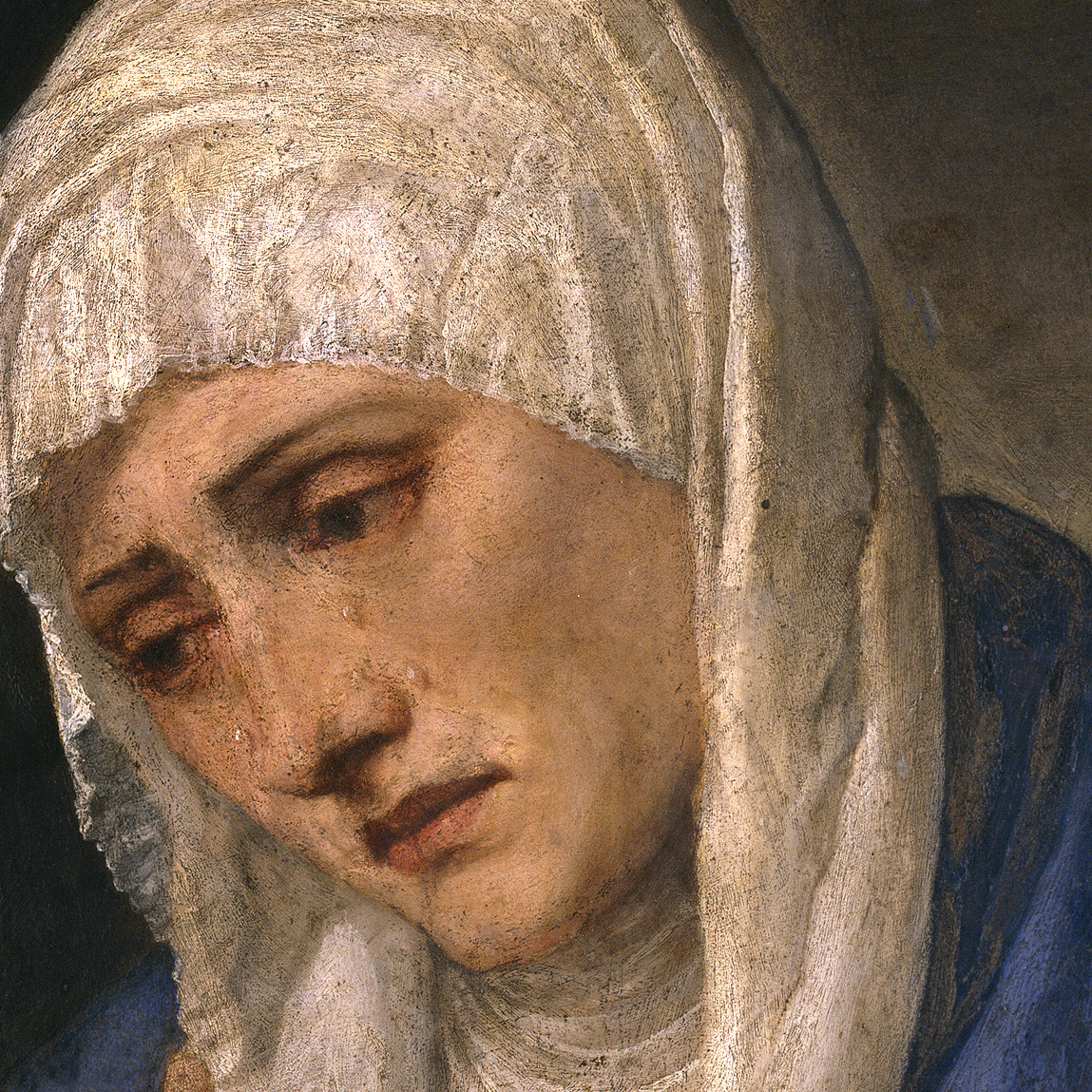Some find it strange, even slightly naughty, that I shut off the news after the elections of November 2020. My experience has taught me otherwise. Having no longer handed my mind over to the distant, impersonal forces that seek to occupy it, I have abandoned my anger and discovered the world anew in front of my eyes, thanks to prayer.
I started praying all fifteen decades of the Rosary (you’ll pardon me if I am old-fashioned) back when Pope Francis made this request in October 2018. Things already seemed bleak enough back then to merit it. Now, the Rosary is my constant companion throughout the day.
Very recently it struck me: Why aren’t there wrathful mysteries to ponder? Anger, we are told, is the appropriate response to evil and injustice. Yet the hell of condemnation that characterizes our times begs the question: Is it really the appropriate response? The Rosary offers the harder but better way of confronting evil and injustice: sorrow. It is plainly evident that our society has lost its capacity to be sad because anger is so much easier, so much more delicious because it combines the illusion of control with claims of righteousness. By contrast, sadness is far more demanding, as it requires one to weep and to wait for comfort from others, especially the Other, who declares, “My grace is sufficient for you, for my power is made perfect in weakness” (2 Cor. 12:9).
Back in November, the Spirit prompted me to release my anger and pray the third Sorrowful Mystery for the newly elected president. The crown of thorns weighs on anyone who leads because all the splendor and glory of this world, and its power, is at once alluring and fading. I began with the hope that somehow this mystery might awaken the president’s conscience, impelling him to declare penitently, “We are wrong. We are wrong about abortion. As a democracy and a people, we will find a better way to address unwanted pregnancies.”
It hasn’t happened, not yet, maybe never, but praying every day for him and those like him who have power but feel powerless to confront the abortion industrial complex has changed my heart; my indignation has slowly given way to sadness. Grief is a constructive means of opening the heart; in the crucible of our moment, one gains insight into Jesus’ paradoxical Beatitudes.
“Blessed are those who mourn, for they shall be comforted” (Matt. 5:4).
The Greek behind this translation emphasizes loss unto death, hence the irreversibility of time in which once something is gone, it cannot be recovered. Of course, the beatitude does not result from the sorrow per se, but the experience of sadness is the occasion of grace. The passive future construction does not directly disclose the one doing the comforting, but the Greek verb gives us the answer: the paráklētos, the paraclete, the comforter, the Holy Spirit. Jesus spoke these words at the Sermon of the Mount, but their fulfillment would have to await the entire Paschal Mystery: reversing the venting of human wrath brought upon him on Good Friday by exercising divine mercy and the entrusting of this message and mandate to the Church under the guidance of the Holy Spirit. Since then, the Lord is prepared to turn our mourning into dancing (Ps. 30:11), if only we would dare to let him.
Instead of wallowing in cacophonous, contagious anger about just about everything, Our Lady of Sorrows beckons us to abide silently at the foot of the cross in mournful companionship, with eyes wide open to the incalculable cost of human anger as well as to unfathomable love that God shows to us through the broken and battered body of his Son. That is our work as human beings. The Resurrection is his response. In the end, love triumphs over death, as Jesus foretold at the Last Supper: “Be of good cheer, for I have overcome the world” (John 16:33).
